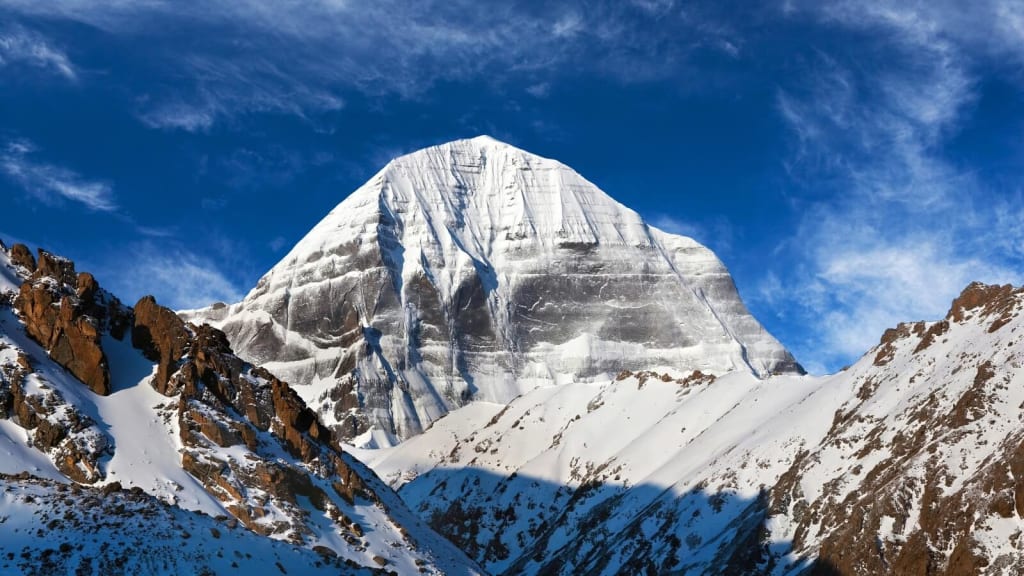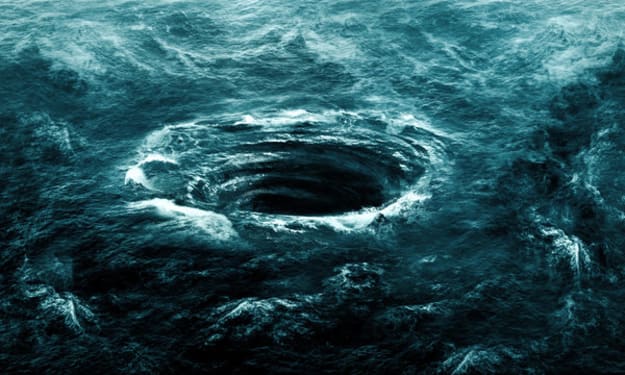The Time-Warping Belief: Accelerated Aging on Mount Kailash
Exploring the Cultural, Psychological, and Physiological Aspects of a Mystical Notion

Perched high in the heart of the Tibetan Plateau, Mount Kailash is a place of profound spiritual significance, revered by Hindus, Buddhists, Jains, and followers of Bön. Its striking beauty and sacred aura attract pilgrims and adventurers from around the world. However, among the many stories and legends associated with this sacred mountain, there is one that has captured imaginations and sparked curiosity: the belief that people who climb Mount Kailash experience accelerated aging. In this article, we will delve into this intriguing notion, examining the cultural, physiological, and psychological aspects surrounding it.
The Enigma of Mount Kailash
Before we delve into the concept of accelerated aging on Mount Kailash, it's crucial to understand the mountain's unique place in the spiritual and geographical landscape. Rising to an imposing height of 6,638 meters (21,778 feet), Mount Kailash is located in the Ngari Prefecture of Tibet, China. It is part of the Transhimalaya Range, also known as the Gangdise Mountains.
Mount Kailash is venerated by multiple religions, with each tradition ascribing its own sacred significance to the mountain. Hindus believe it is the abode of Lord Shiva, Buddhists associate it with enlightenment, Jains revere it as the place of spiritual ascension, and Bön practitioners consider it a sacred site. Pilgrims from these diverse backgrounds undertake the Kora—a ritual circumambulation of the mountain—as an integral part of their spiritual journey.
The Notion of Aging Faster
The belief that those who climb Mount Kailash experience accelerated aging is a deeply rooted and widely held conviction among pilgrims and locals in the region. The idea suggests that the physical and physiological toll of circumambulating the mountain and reaching its summit expedites the aging process. While this notion may seem fantastical, it's essential to consider the cultural and psychological factors that contribute to it.
Cultural Significance and Beliefs
Mount Kailash holds immense spiritual and cultural importance for the people of the region. The belief in accelerated aging may stem from the mountain's awe-inspiring stature and the arduous journey required to reach its summit. The strenuous trek through high altitudes and unpredictable weather conditions can indeed take a toll on the human body, especially for those who are not acclimated to such extremes.
Moreover, pilgrims often undergo rigorous physical and mental challenges as they undertake the Kora. These hardships, combined with the mountain's sacred status, may have led to the belief that the experience somehow ages individuals prematurely.
Psychological Factors
The psychological impact of a challenging pilgrimage cannot be underestimated. The anticipation of the journey, the rigorous physical exertion, and the mental fortitude required can lead to a heightened sense of time passing. Pilgrims may perceive the days spent circumambulating Mount Kailash as longer or more physically taxing than they actually are.
Additionally, the spiritual significance of the mountain can intensify the psychological aspects of the journey. Pilgrims may be more attuned to their physical sensations and may attribute changes in their well-being, such as fatigue or aching muscles, to the belief in accelerated aging.
Physiological Stress and Aging
While the notion of accelerated aging on Mount Kailash may have cultural and psychological underpinnings, it's worth exploring whether there are physiological factors that could contribute to this belief.
The trek around Mount Kailash involves considerable physical stress. At high altitudes, the body must work harder to obtain oxygen, which can lead to fatigue and exhaustion. Exposure to extreme cold, rapid changes in weather, and a lack of modern amenities can further strain the body.
This physical stress can manifest as symptoms commonly associated with aging, such as joint pain, muscle fatigue, and a general sense of weariness. Pilgrims may attribute these symptoms to the belief that they are aging faster.
The Subjective Nature of Time
One of the most intriguing aspects of the belief in accelerated aging on Mount Kailash is its connection to the subjective nature of time. Time is not merely a constant progression of seconds, minutes, and hours; it is also influenced by our experiences, emotions, and perceptions.
In the midst of a challenging pilgrimage, time can feel both elongated and compressed. The days may seem to stretch on endlessly as the body labors through difficult terrain, yet the journey as a whole may pass in the blink of an eye as pilgrims become immersed in their spiritual pursuits.
Conclusion: The Paradox of Time
The belief that people who climb Mount Kailash experience accelerated aging is a captivating aspect of the mountain's mystique. While it may be rooted in cultural, psychological, and physiological factors, it ultimately underscores the profound impact that such a spiritual journey can have on an individual's perception of time.
Mount Kailash continues to be a place where the boundaries of the physical world and the spiritual realm merge, where time takes on a different dimension. It serves as a reminder that the experience of time is not solely measured by the ticking of clocks but is intimately tied to our emotions, experiences, and the awe-inspiring power of nature and spirituality. In this timeless realm, Mount Kailash remains an enduring enigma, inviting pilgrims and adventurers to explore not only its physical heights but also the depths of their own perceptions and beliefs.
About the Creator
Harika Vaddi
Exploring various topics through writing.





Comments
There are no comments for this story
Be the first to respond and start the conversation.